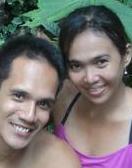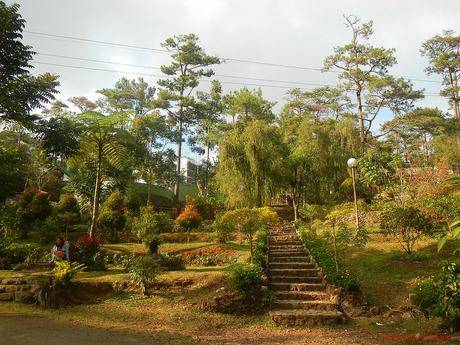
The nice thing about Baguio is that the attractions are really close to each other. Yes, you can just walk down the road; and sooner or later, you’ll find something that picks up your interest. And the best thing about Baguio? You can hike all you want without feeling uncomfortably hot as the cool, fresh mountain air constantly warms up your body. In fact, we wouldn’t mind walking around the city all day!
Baguio is definitely a city walker’s dream come true. We wouldn’t mind setting up residence in the city of pines at all!
Ketchup Food Community
After buying a few key chains from Wright Park, we walked down the road and arrived at the Ketchup Food Community. This is one of the city’s most popular watering holes for foodies.
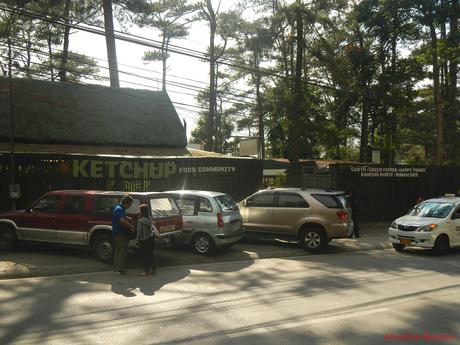
Inside the fenced “community,” small food establishments are stuffed close to each other. The only open space left is a small gravel-layered clearing at the center.
You can find a variety of restaurants and bistros serving all kinds of cuisine, from traditional Filipino dishes to rare watchamacallit viands.
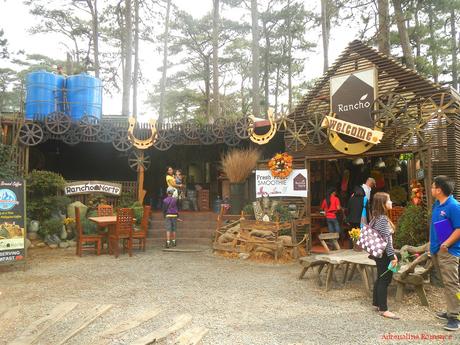
We were still stuffed from our heavy meal at Pizza Volante, so Sweetie and I decided to simply try out a few drinks. We chose a restaurant that serves Indonesian and Malaysian cuisine.
Sweetie ordered a glass of cold, refreshing cherry tea while I got myself a cup of warm Teh Tarik, an Indonesian milk tea.
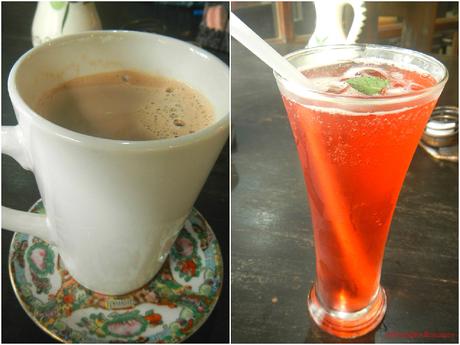
Paired with the sweet macarons we ordered earlier, our light snack was a blast!
Oh, and another thing: our server spoke Bisaya! Wohoo! We learned that he originally came from Cebu but has settled in Baguio for most of his life. We weren’t surprised; Baguio is absoloutely enchanting!
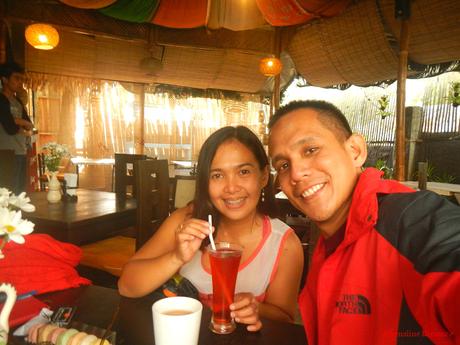
Baguio Botanical Garden
After finishing our exceptionally great-tasting drinks, we hiked down the road and arrived at another one of the city’s verdant parks, the Baguio Botanical Garden. The front features a large relief of scenes that depict Ifugao culture.
A warning: As we approached the entrance to the garden, a group of elders dressed as native Ifugaonons unceremoniously approached us when I asked Sweetie to stand in front of the sign. They posed with Sweetie when I took out my camera. However, right after I snapped the photo, each of the old people—and we reckon there were a dozen of them—asked us for payment for having their pictures taken.
What the heck? We didn’t ask them to pose for us! They simply went into the frame without our permission! Feeling annoyed, I gave one a P10 coin, but they insist that each one in their group should receive payment! Whaaaat? Sweetie and I immediately left the area, scowling. Team Sweetie is generous, but we don’t want this style of moneymaking.
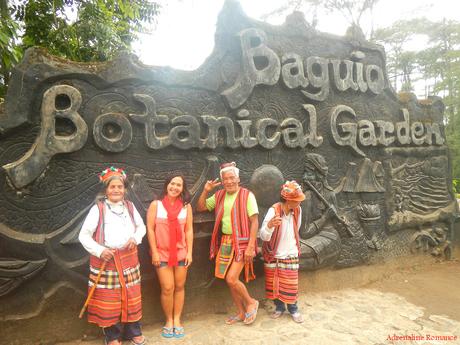
Anyway, let’s get on with the tour. From the entrance, a long winding paved pathway led deeper into the garden.
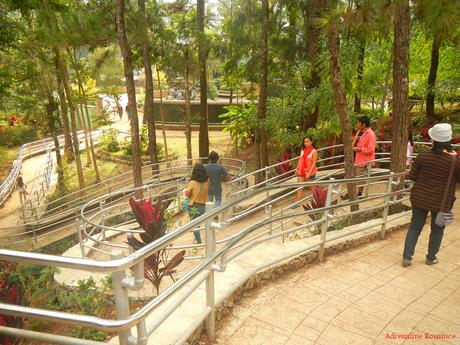
The starting point of the garden tour seemingly starts at this nice wooden sculpture. We didn’t find any plaque that tells the story of this centerpiece, but it seems to depict a prominent Ifugao industry—farming.
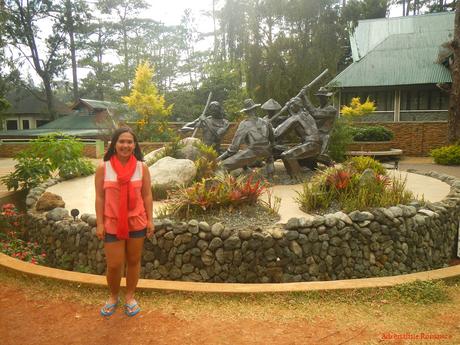
It’s all green! Many of Baguio’s endemic plant species can be found in the Botanical Garden. Several plants have labels on them for easier identification.
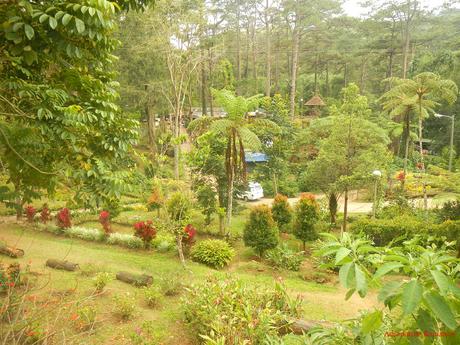
We just can’t resist walking under a trellis, which provides a nice cool shade against the glare of the afternoon sun. Hehehe!
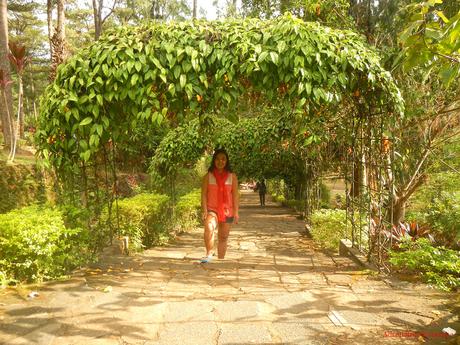
We passed by these couple of lady souvenir vendors doing something interesting. Upon closer look, we realized they were making meticulously handcrafted keychains made of fallen pine cones and twigs! We were simply mesmerized at how such beautiful things can be made by the simplest materials that people often think as garbage. Kudos to these hardworking ladies and innovative Filipino craftsmanship!
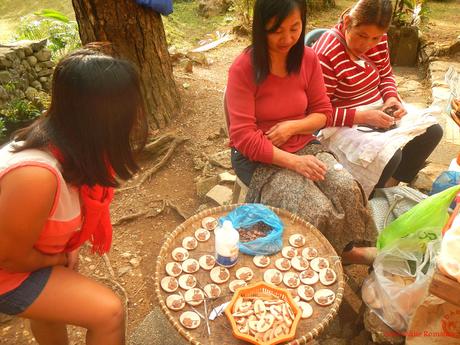
The nucleus of the botanical garden is this runabout. All paths end here like the spokes of a wheel. The runabout features nice sculptures of native Ifugaos.
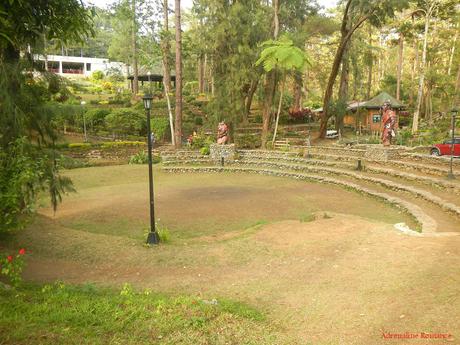
The garden also boasts of an expansive plant nursery. We’re not really sure, but you can most likely buy plants for your garden here. Just make sure that your place has the same climatic and soil conditions as in Baguio.
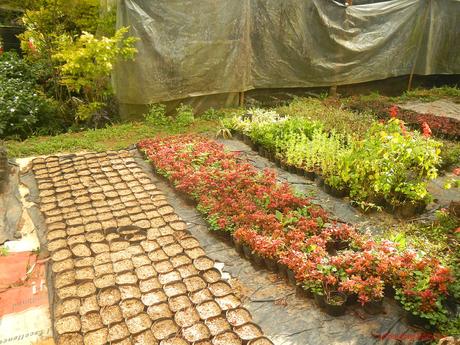
Is that the Golden Gate Bridge in Baguio? No, it’s just a replica of the real Golden Gate Bridge, given by the citizens of Vallejo, one of Baguio’s international sister cities, in California as a memorial for its 16 years of partnership.
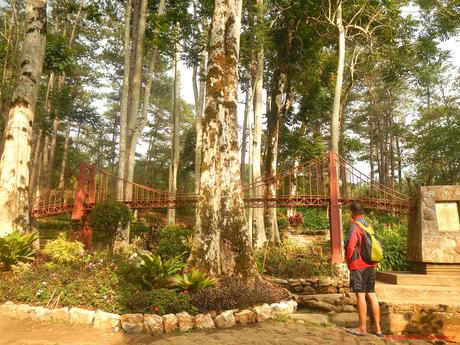
Giant pine trees dot the park, making it feel as if you are walking right in the heart of the pine forest in Akiki. The trees’ large canopies block the sunlight, making the Botanical Garden feel more chilly than the already cool surroundings.
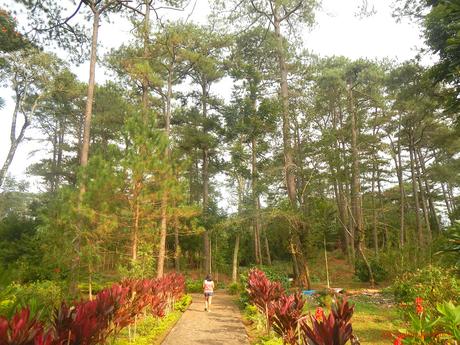
Check out all those vibrant blossoms. They really break the monotony of green and light up like multi-colored suns in a verdant universe.
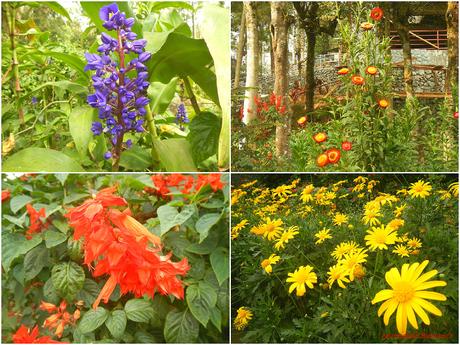
Souvenir shops line up one side of the park. You can buy everything, from tiny keychains to even large furniture.
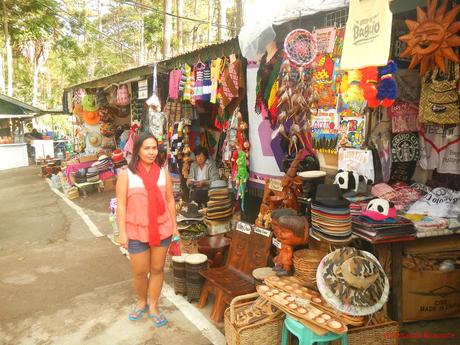
If Sweetie and I will, somehow, become billionaires, we want our estate to have a garden like this! Hehehe! Beautiful, isn’t it?
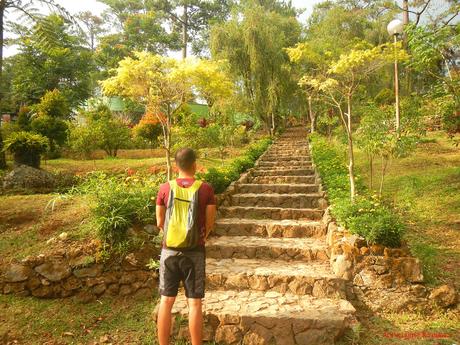
Camp John Hay
After going walking around the Botanical Garden for an hour (and trying our best to avoid the elders at the entrance), we hailed a taxi and headed off to Camp John Hay, high up in the hills of Baguio. We’ll write a separate article for that.
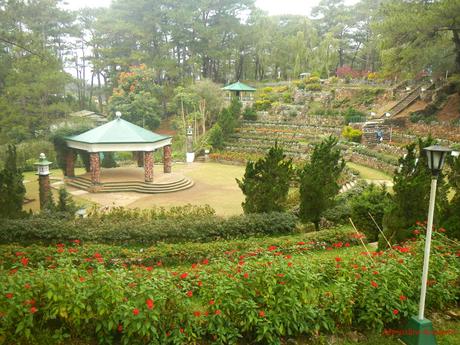
A Last Look…for Now
After visiting Camp John Hay, we went back downtown to have dinner. We found a place called Cafe Cueva which is part restaurant, part artist hole, similar to Enigmata Eco Lodge in Camiguin. Their chunky balbacua (stewed cow fat) is really heavenly! And you should pair it with their citrus dalandan-cucumber shake.
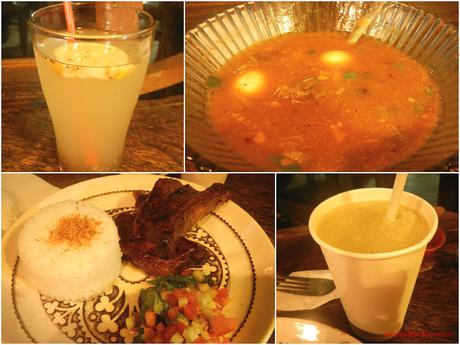
Burnham Park was just a block away, so we decided to hang out there for a little while before going back to our hotel to get our things. We saw the park’s colorful dancing fountain activated, and it was a sight to behold despite the absence of music.
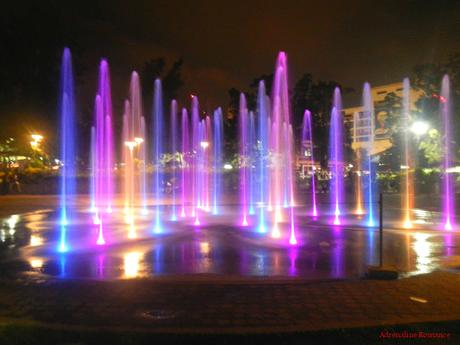
That’s another type of dancing fountain in the park. The water flows in graceful arcs.
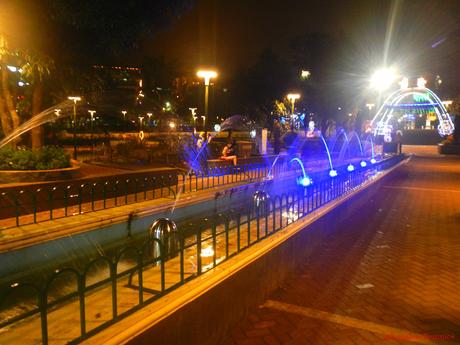
Then, it was time to leave the beautiful city of Baguio. We took a 5-hour, red-eye bus back to Manila so we can catch our Air Asia flight. We had quite a delay, so we took our time to eat lunch, gobble up the last of our macarons, and chatted with a nice lady traveler who hails from Canada.
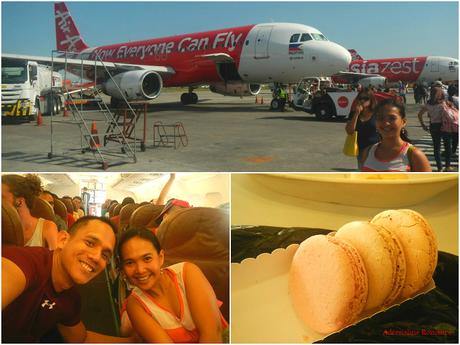
Thank you very much, Baguio! We have just scratched the surface of the city, and there are simply so many more things to see and do in the country’s summer capital. Baguio is one of those charming places that simply strikes you with surprise as you blurt out loud, “I can’t believe we have something like this in the Philippines!”
We are planning to go back to Mt. Pulag in 2016 to see the sea of clouds. You can bet your last peso that we’ll visit Baguio’s other wonders.
Tips to follow
